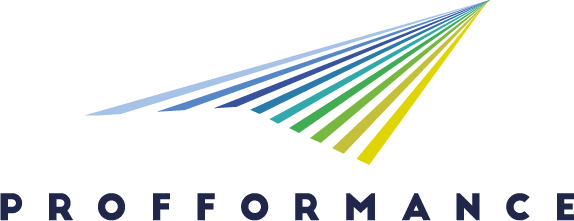INNOSOCIAL
Innosocial aspects of entrepreneurship: an interdisciplinary approach and course design for raising eco-awareness and developing the social responsibility attitudes of the innovative future changemakers
- 01 - Education
- 03 – Social sciences, journalism and information
- 04 – Business, administration and law
- 06 – Information and Communication Technologies
4. Impact and mission with and for society
- Promoting social responsibility through teaching professional and ethical values
- Teaching through real social projects addressing society’s global challenges
- Promoting students' social entrepreneurship projects
- Joint practices with social partners and stakeholders of civil society for empower students to active citizenship
The Innosocial aspects of entrepreneurship focuses on an uncovered niche in the entrepreneurial education by exploring the opportunities of creating positive social impact from the birth of innovative ventures, while also striving for profitability. The course can improve students’ responsiveness and critical thinking in such important fields like green and digital transformation, social responsibility and analytical skills in an international context, besides developing cross-disciplinary competencies. In this experimental field, the course designer and educator cannot state general truths, just lead the way, on how students can detect facts, cases, and examples from the practices of tech companies and their ecosystem. This bold experiment of combining the experience and mission-oriented approaches of the social entrepreneurship with the obvious aim of tech ventures to be market-leading and profitable, led to an unexpected success among diverse groups of students within the university and at an inter-university level. After a pilot implementation, the Innosocial became an elective course in the curriculum of the EIT Digital Master School. From the 2nd implementation, the scope of was extended and year by year more students from other faculties of Eötvös Loránd University chose this elective course, strengthening the application of cross-disciplinary approaches. Each spring semester, around 25 ELTE students (so far ca. 100 altogether) completed the course. The experience and mission of the Innosocial elective course initiated a new Activity within the EIT Digital Innovation and Entrepreneurship work group, inspiring partner universities to develop their advanced level entrepreneurship elective courses. In 2021, a part of this workgroup got funded through the Erasmus+ Higher education program for the PORTFOLIO project, to enable the interconnection of their elective courses. Innosocial course with 5 other electives from 5 partners was offered for students at an inter-university level. (in 2023: ca. 45, in 2024 ca. 40 students). Based on the experiences of the PORTFOLIO project, partners improved their methodologies and contents, and won funding for the REDINEST Erasmus+ project that aims to spread the message of Innosocial course through internationally distributed impact labs. Beyond that, Innosocial course was selected to the international course portfolio of the CHARM-EU university association, strengthening its impact on European Higher Education.
Methodology
Tools, equipment, technology used
Outcomes and outputs, main results
Lessons learnt
Adaptability and sustainability of the best practice (for other institutions)
Promotion of best practice
Scope and impact
- Course/department level
- Faculty level
- Institutional level
- Cross-institutional level
- National level
- EU/EHEA/International level
6.1 Digitalization
- Outstanding, innovative, excellent practices of online / blended / hybrid learning
- Digital skills development and assessment both general and profession-related, embedded in course design, in teaching and assessment
- Novel digital solutions (tools, frameworks, devices, tasks to enhance efficiency and motivation)
- Digital scientific sources used in T&L
Reasoning: As described in 5.2., diverse digital tools support the interactivity of the course implementation. The digital skill development also happens in a student-powered way, as students work in distributed groups with members of different disciplinary background, so computer science students are in charge of explaining the latest technologies in a generally understandable way. This approach can create a creative harmony among participants, contributing to the closing of the digital divide.
6.2 Internationalization
- Developing students' multicultural awareness
- Students engagement in international projects
- Courses implemented in international cooperation (projects, co-teaching, virtual/blended mobility, etc.)
- Courses offered to international multicultural students both online and offline
- International projects/research results embedded into course development and T&L
Reasoning: INNOSOCIAL - Internationalization with an impact 1) Intercultural perspectives arrive in the interactive discussion through the participants who are joining from different (international) universities to the course sessions, through questions of possible different interpretations of the discussed topics in different regions and by analyzing diverse restrictions of the chosen topic. To provide the possible broadest perspective, all cases and examples introduced have a global impact. 2) Innosocial course (see prev. chapters) is part of interconnected education with partner universities from PORTFOLIO and CHARM-EU projects, enabling and assuming active cooperation of international colleagues. 3) The course was designed to support and highlight diversity, all the interactive sessions and assignments can be completed with true openness from all sides. 4) The nature of the discussed topics, networking sessions and ice-breaking parts all intentionally support the intercultural exchanges.
6.3 Inclusion and diversity, universal design
- Universally designed teaching material - adjustable for special needs
- Alternative, flexible assessment methods for students with special needs
- Senzitivizing students to consider special needs when practicing their profession
- Course includes hints on how the services/products of the profession could be universally designed/inclusive
Reasoning: As Innosocial course embraced aspects from social entrepreneurship as well, new tech innovations that are created to help those who are differently abled are discussed. It is an expectation in the team and individual idea presentations to offer a design or a solution that is not only responsible socially and environmentally, but is or can be further developed to become entirely inclusive. Marketable social innovations serve as core examples of how to innovate inclusively.
6.4 Sustainability
- Teaching material contains profession related sustainability aspects
- Special courses reflecting to UN 2030 Sustainability goals, Green Deal - mini-courses, microcredentials
- Social entrepreneurship projects, service-learning in the topic
- Environmental attitude, skill development and assessment either general or profession-related
- Sustainability aspects are considered in all phases of the learning practice - "hidden curriculum"
Reasoning: As Innosocial course aims to form the responsible thinking of the future leaders and innovators, it explains several contexts of sustainable processes and thinking through practical examples. SDG goals, Green Deal and related cases and questions are groped in modules of the course, and as mentioned above, Innosocial relies on social entrepreneurship approach as well. In the micro-course 'form' of Innosocial, environmental responsibility aspects of the new tech innovations were covered as well.
3.3 Public contact datas
| Name | Email address | Website |
|---|---|---|
| Barbara Hegyi Dr. | bhegyi@inf.elte.hu | https://www.linkedin.com/in/barbarahegyiphd/ |

